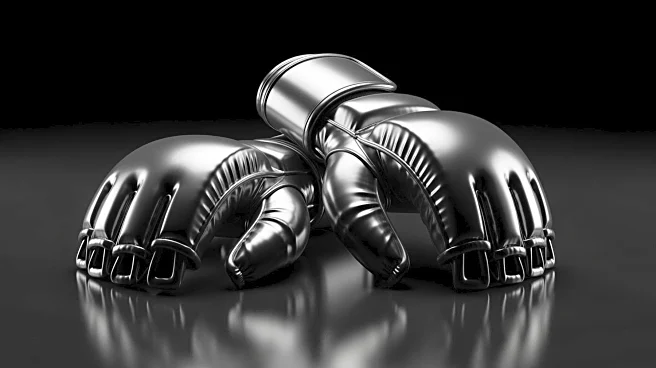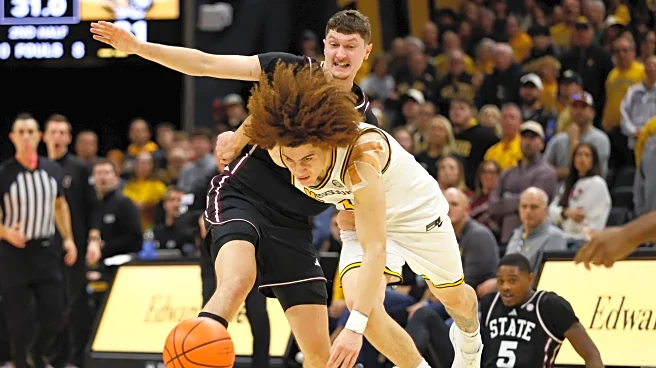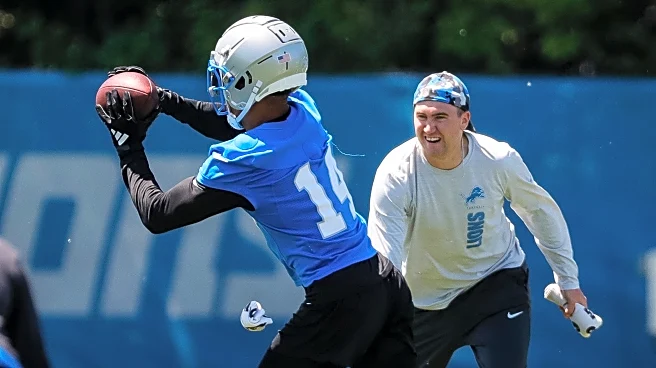What's Happening?
Jim Miller, a veteran UFC fighter, has voiced strong criticism against the UFC's handling of eye-pokes during matches, following a controversial incident involving Tom Aspinall and Ciryl Gane. Miller, who
holds the record for the most UFC fights, argues that the lack of accountability for eye-pokes is a significant issue within the sport. He believes that the problem is not related to equipment but rather a cultural issue within the UFC, where fighters are not penalized for such fouls. Miller suggests that financial penalties, point deductions, or suspensions could incentivize fighters to avoid eye-pokes, thereby protecting opponents' eyesight. He contrasts the UFC's approach with PRIDE FC, where immediate financial penalties were imposed for fouls, resulting in fewer eye-pokes.
Why It's Important?
The issue of eye-pokes in UFC fights is significant as it affects the safety and fairness of the sport. Miller's call for accountability highlights the need for stricter enforcement of rules to prevent potential injuries. If the UFC implements penalties for eye-pokes, it could lead to a safer environment for fighters and maintain the integrity of the sport. The current lack of consequences for such fouls may encourage fighters to prioritize winning over safety, which could result in severe injuries. Addressing this issue is crucial for the UFC to evolve and ensure the well-being of its athletes.
What's Next?
Miller's criticism may prompt discussions within the UFC and among governing bodies about implementing stricter penalties for eye-pokes. If the UFC decides to adopt Miller's suggestions, it could lead to changes in the rules and enforcement practices. Fighters, coaches, and officials may need to adapt to new regulations that prioritize safety and accountability. The potential introduction of financial penalties or point deductions could alter the strategies employed by fighters, emphasizing the importance of maintaining closed hands during matches.
Beyond the Headlines
The debate over eye-pokes in UFC fights raises broader questions about the culture of fighting and the balance between aggression and safety. Miller's comparison with PRIDE FC suggests that cultural shifts within the sport can significantly impact fighter behavior and safety standards. The issue also touches on ethical considerations regarding the responsibility of fighters and organizations to protect athletes from preventable injuries. As the sport continues to grow, addressing these cultural and ethical dimensions will be essential for its sustainable development.










